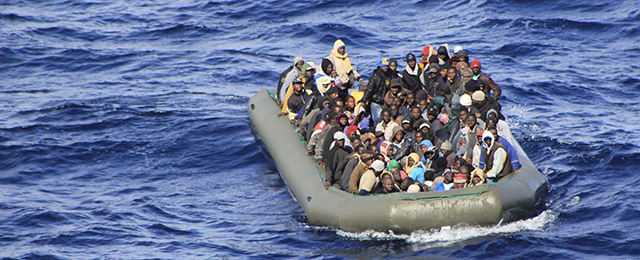This article was originally published on Fair Observer.
Following the latest tragedy involving migrants, 28 members and leaders of the EU have initiated plans for a military operation to combat criminal gangs who smuggle refugees in thousands per ship. The details of the initiative still need to be clarified, and the body of water where the operation will cover needs to be decided. This will require Libya’s permission to destroy the smugglers’ boats in its territorial waters. The EU needs to obtain a mandate in order to operate under Chapter 7 of the United Nations (UN) charter.
Despite these measures that still need to be decided upon, the operation will come into existence, as the pressure on the EU to stop deaths in the Mediterranean is too much to ignore.
The model for the new venture is based on the maritime European Union Naval Force Somalia, or Operation Atalanta, which came into existence in 2008 in order to counter piracy off the coast of Somalia and the Gulf of Aden.
As a result of the civil war in Somalia, a lawless space was created that allowed well-armed militias to operate. More and more ships, including some from the UN World Food Programme, which were delivering vital goods to Somalia, have been hijacked in the past. In the first nine months of 2008, ransoms extorted by the pirates reached anywhere from $18-30 million.
Operation Atalanta have succeeded in safely escorting over 300 UN ships to their destinations. In 2013-14, every attack by pirates had been foiled. This was made possible by the fact that the EU deployed 1,200 personnel, four to six vessels and two to three reconnaissance aircraft to patrol an area almost half the size of Europe.
However, when looking at these numbers, it must be kept in mind that these results only became visible in 2012, when the number of attacks dropped from 176 to 35. The European Union’s many efforts on land contributed to this development, offering people in Somalia economic prospects and strengthening government structures: EU civilian missions EUTUM Somalia and EUCAP Nestor have contributed to education and building up the capacity of the Somali army and naval forces since 2010.
Through its SHARE program, the EU has been softening the humanitarian needs of the population since 2011. The first free elections in 45 years, which led to the establishment of a stable political process in Somalia, were organized by the EU.
In 2010, Brussels realized that the causes of piracy were on land, not water, and that piracy could only be sustainably resolved there. Eventually, a holistic approach led to success.
Continue reading here.
This article was originally published on Fair Observer.






Be the first to comment on "The EU must focus on root causes of migration"